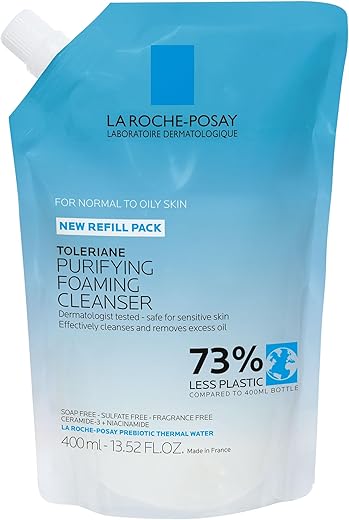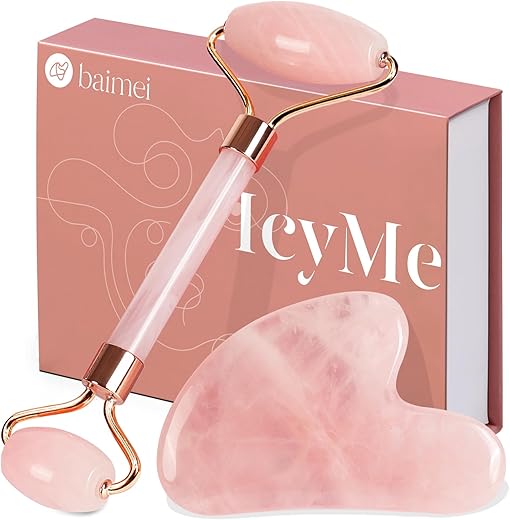
Does Face CC Cream Provide Sun Protection?
We all know the importance of protecting our skin from the harmful rays of the sun. But with so many products claiming to provide sun protection, it can be overwhelming to choose the right one. One such product that has gained popularity in recent years is Face CC Cream. But does it really provide the sun protection it claims? In this post, we will delve into the world of Face CC Cream and explore whether it truly offers the sun protection our skin needs. So if you’re someone who wants to make an informed decision about your skincare routine, keep reading to find out all you need to know about Face CC Cream and its sun protection capabilities.
Top-rated Face CC Creams for flawless skin






What is Face CC Cream?
Face CC Cream, also known as Color Correcting Cream, is a versatile beauty product that combines the benefits of skincare and makeup. It has gained immense popularity in recent years due to its ability to provide a flawless complexion while addressing specific skin concerns.
The Purpose of Face CC Cream
The primary purpose of Face CC Cream is to correct and even out skin tone, giving you a natural-looking finish. It goes beyond traditional foundations or tinted moisturizers by providing additional skincare benefits. Here are some of the key purposes of Face CC Cream:
- Color Correction: Face CC Cream is specially formulated to counteract various complexion issues such as redness, dullness, and discoloration. It uses color-correcting pigments to neutralize these imperfections, resulting in a more balanced skin tone.
- Sun Protection: Many Face CC Creams contain SPF (Sun Protection Factor) to shield your skin from harmful UV rays. This helps prevent sun damage, premature aging, and the development of dark spots or hyperpigmentation.
- Hydration: Face CC Creams often contain moisturizing ingredients that hydrate and nourish the skin. This is particularly beneficial for those with dry or dehydrated skin, as it helps to improve texture and maintain a healthy-looking complexion.
- Coverage: While Face CC Creams provide a lighter coverage compared to foundations, they still offer enough coverage to minimize the appearance of blemishes, redness, and other imperfections. They allow your natural skin to shine through while providing a more polished look.
- Ease of Application: Face CC Creams are incredibly easy to apply, making them a convenient choice for those who prefer a fuss-free makeup routine. They can be blended effortlessly with fingertips, brushes, or sponges, saving you time and effort in the morning.
Choosing the Right Face CC Cream for You
With so many options available in the market, it can be overwhelming to choose the right Face CC Cream for your needs. Here are some key factors to consider:
- Shade Range: Ensure that the CC Cream offers shades suitable for your skin tone. Some brands offer a limited range, while others provide a more extensive selection.
- Skin Concerns: Identify your specific skin concerns and choose a Face CC Cream that addresses them effectively. For example, if you struggle with redness, look for a CC Cream with green undertones to neutralize it.
- Tint and Coverage: Consider the level of coverage you desire. Some CC Creams offer a sheer, natural finish, while others provide more coverage. Additionally, choose a tint that complements your skin tone for a seamless blend.
- SPF Protection: If sun protection is important to you, opt for a Face CC Cream that has a sufficient SPF rating. Look for broad-spectrum protection to shield your skin from both UVA and UVB rays.
- Ingredients: Be mindful of the ingredients in the CC Cream, especially if you have sensitive skin or specific allergies. Look for formulas that are free from potential irritants and contain beneficial ingredients like antioxidants or hydrating agents.
Understanding Sun Protection
Sun protection is essential for maintaining healthy skin and preventing sun damage. The harmful ultraviolet (UV) rays emitted by the sun can cause a range of skin problems, from sunburn to skin cancer. In this blog section, we will discuss the importance of sun protection and the potential risks of sun exposure on the skin.



The Importance of Sun Protection
1. Prevents Sunburn
One of the most obvious and immediate consequences of sun exposure is sunburn. Sunburn occurs when the skin is damaged by excessive UV radiation. Sunscreen acts as a protective barrier, reducing the risk of sunburn and the associated discomfort.
2. Reduces Skin Aging
Excessive sun exposure can accelerate the aging process and lead to premature wrinkles and fine lines. Sun protection, particularly sunscreen, helps to minimize the harmful effects of UV rays, keeping your skin looking youthful and radiant.
3. Lowers Skin Cancer Risk
Prolonged exposure to the sun’s UV radiation can increase the risk of developing skin cancer. Regular use of sun protection measures, such as wearing protective clothing and applying sunscreen, can significantly reduce this risk.
4. Prevents Hyperpigmentation
UV radiation can trigger the production of excess melanin, leading to the development of dark spots and uneven skin tone. Sun protection helps to prevent hyperpigmentation, keeping your skin tone even and blemish-free.
Risks of Sun Exposure on Skin
1. Sunburn
Sunburn is not only painful but also a clear sign of skin damage caused by UV radiation. It increases the risk of skin cancer and can cause long-term skin problems.
2. Skin Cancer
UV radiation is a leading cause of skin cancer. Prolonged sun exposure, especially without protection, can increase the risk of developing various types of skin cancer, including melanoma, basal cell carcinoma, and squamous cell carcinoma.
3. Premature Aging
Excessive sun exposure can accelerate the aging process, resulting in wrinkles, fine lines, and sagging skin. This premature aging is often irreversible and can significantly impact your appearance.
4. Eye Damage
UV radiation can harm your eyes as well. Prolonged exposure to the sun without proper eye protection can lead to cataracts, macular degeneration, and other eye conditions.
Choosing the Right Sun Protection
1. Broad-Spectrum Sunscreen
Select a broad-spectrum sunscreen that protects against both UVA and UVB rays. Look for a sun protection factor (SPF) of 30 or higher.
2. Sun-Protective Clothing
Wear clothing that covers your skin and acts as a physical barrier against UV radiation. Opt for lightweight, breathable fabrics with a tight weave for better protection.
3. Seek Shade
When the sun is at its peak, seek shade to minimize direct exposure. This is especially important between 10 am and 4 pm when UV rays are strongest.
4. Wear Sunglasses
Invest in sunglasses that provide 100% UV protection to shield your eyes from harmful rays.
Does Face CC Cream provide sun protection?
When it comes to protecting our skin from the harmful effects of the sun, sunscreen is a must-have in our skincare routine. But what about face CC creams? Can they provide the sun protection we need? In this blog post, we’ll explore the ingredients commonly found in face CC creams that offer sun protection and their effectiveness.



Understanding Face CC Creams
CC stands for “color correcting,” and CC creams are a popular multi-tasking beauty product. They offer coverage, hydration, and often provide additional skincare benefits, such as sun protection. CC creams are lighter than foundation and provide a more natural finish, making them a go-to option for those who prefer a lighter makeup look.
The Sun Protection Factor (SPF)
To determine the effectiveness of sun protection in face CC creams, we look at the Sun Protection Factor (SPF). SPF measures how well a product can protect the skin from the sun’s harmful UV rays. The higher the SPF, the better the protection.
Sunscreen Ingredients in Face CC Creams
Many face CC creams on the market contain sunscreen ingredients to offer sun protection. Here are some commonly found ingredients and their effectiveness:
1. Zinc Oxide
- Zinc oxide is a mineral sunscreen ingredient that provides broad-spectrum protection against both UVA and UVB rays.
- It forms a physical barrier on the skin’s surface, reflecting and scattering the sun’s rays.
- Offers excellent protection and is suitable for all skin types, including sensitive skin.
- Provides instant protection upon application.
2. Titanium Dioxide
- Titanium dioxide is another mineral sunscreen ingredient commonly found in face CC creams.
- Like zinc oxide, it provides broad-spectrum protection.
- It works by reflecting and scattering UV rays away from the skin.
- Ideal for sensitive and acne-prone skin, as it is less likely to cause irritation.
3. Octinoxate
- Octinoxate is a chemical sunscreen ingredient that primarily protects against UVB rays.
- It absorbs UVB rays and converts them into heat, preventing them from penetrating the skin.
- Often used in combination with other sunscreen ingredients for enhanced protection.
4. Octisalate
- Octisalate is another chemical sunscreen ingredient that primarily protects against UVB rays.
- It absorbs UVB rays and prevents them from damaging the skin.
- Provides additional stability to other sunscreen ingredients.
Comparing Sun Protection Effectiveness
To help you understand the sun protection effectiveness of face CC creams, here’s a comparison table:
| Ingredient | Broad-Spectrum Protection | Instant Protection | Skin Compatibility |
|---|---|---|---|
| Zinc Oxide | Yes | Yes | All skin types |
| Titanium Dioxide | Yes | Yes | Sensitive skin |
| Octinoxate | No | No | All skin types |
| Octisalate | No | No | All skin types |
Factors to consider when choosing a Face CC Cream for sun protection
Protecting our skin from the harmful effects of the sun is crucial, and one effective way to do so is by using a face CC cream with sun protection. With so many options available in the market, it can be overwhelming to pick the right one. In this blog post, we will discuss the important factors to consider when choosing a face CC cream for sun protection. By understanding these factors, you can make an informed decision and ensure that your skin stays healthy and protected.



SPF Level
The Sun Protection Factor (SPF) is a measure of how well a product protects the skin from the sun’s harmful rays. It indicates the amount of time it takes for the skin to start burning compared to when it’s unprotected. When choosing a face CC cream, look for an SPF level of at least 30. This will provide adequate protection against both UVA and UVB rays. Higher SPF levels, such as 50 or above, offer even more protection, especially for those with fair or sensitive skin.
Broad-Spectrum Protection
While SPF is important, it’s equally essential to ensure that the face CC cream provides broad-spectrum protection. This means that it shields your skin from both UVA and UVB rays. UVA rays can cause premature aging and wrinkles, while UVB rays are responsible for sunburns. By choosing a product with broad-spectrum protection, you can defend your skin against both types of rays, reducing the risk of sun damage and maintaining a youthful appearance.
Application Method
Consider the application method that works best for you when selecting a face CC cream for sun protection. Some creams come in a tube or bottle and can be applied with your fingertips. Others may have a built-in brush or sponge applicator, making the application more convenient. Additionally, some face CC creams offer a tinted formula, providing coverage for blemishes or uneven skin tone. Choose a method that suits your preferences and fits seamlessly into your skincare routine.
Skin Type and Coverage
It’s important to consider your skin type when choosing a face CC cream for sun protection. Different formulations cater to specific skin types, such as oily, dry, or sensitive. Look for a product that is specifically designed for your skin type to ensure optimal performance and comfort. Additionally, consider the coverage level you desire. Some face CC creams offer sheer coverage, while others provide a more substantial, buildable coverage. Choose the one that aligns with your preferences and needs.
Additional Considerations
Apart from the factors mentioned above, there are a few other considerations to keep in mind when selecting a face CC cream for sun protection:
- Ingredients: Look for face CC creams that are formulated with skin-nourishing ingredients such as antioxidants, hyaluronic acid, or vitamins.
- Longevity: Consider the longevity of the product and its ability to withstand sweat and water, particularly if you engage in outdoor activities or have an active lifestyle.
- Skin Sensitivity: If you have sensitive skin, opt for a face CC cream with gentle and hypoallergenic ingredients to minimize the risk of irritation or allergic reactions.
By taking these factors into account, you can choose a face CC cream that not only provides sun protection but also suits your skin type and personal preferences.
Remember, protecting your skin from the sun is not just a seasonal concern but a year-round necessity. Incorporating a face CC cream with sun protection into your daily skincare routine can help shield your skin from harmful UV rays, reduce the risk of sun damage, and maintain a healthy complexion in the long run.
So, take the time to find the right face CC cream for sun protection that ticks all the boxes for your skin’s needs and enjoy the benefits of protected and radiant skin.
Summary and Recommendations
In conclusion, Face CC Cream can offer some level of sun protection, but it may not be sufficient on its own. This blog post has highlighted the importance of choosing a Face CC Cream with adequate sun protection and the need to prioritize sunscreen for optimal sun protection. It is crucial to remember that protecting our skin from harmful UV rays should be a top priority. Therefore, it is recommended that readers prioritize sunscreen alongside their Face CC Cream to ensure maximum sun protection and maintain healthy skin.

Hey, I’m Ava Wilson—a skincare enthusiast and a certified esthetician. I’m dedicated to sharing my knowledge and empowering others to achieve healthy, glowing skin through simple, effective routines and natural remedies. Join me on this exciting skincare journey, and let’s unlock your skin’s potential for a confident, beautiful you.





